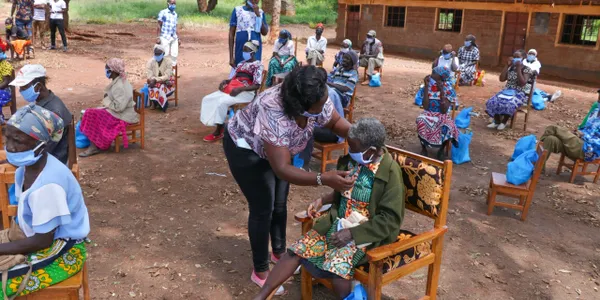Objective:
To design and implement a comprehensive health check-up program tailored for elderly individuals, focusing on early detection and prevention of age-related health issues.
Components of the Health Check-Up:
- Medical History Review:
- Purpose: Understand past medical conditions, surgeries, medications, and family health history.
- Method: Conduct detailed interviews and review medical records.
- Physical Examination:
- Vital Signs: Measure blood pressure, heart rate, respiratory rate, and temperature.
- General Assessment: Evaluate weight, height, body mass index (BMI), and physical fitness.
- Laboratory Tests:
- Complete Blood Count (CBC): Detect anemia, infections, and other hematological conditions.
- Lipid Profile: Assess cholesterol levels to evaluate cardiovascular risk.
- Blood Glucose Test: Screen for diabetes or pre-diabetic conditions.
- Renal and Liver Function Tests: Monitor kidney and liver health.
- Imaging Studies:
- Chest X-ray: Identify lung conditions or cardiac abnormalities.
- Bone Density Scan (DEXA): Detect osteoporosis or decreased bone mass.
- Sensory Evaluations:
- Vision Test: Check for cataracts, glaucoma, and age-related macular degeneration.
- Hearing Test: Identify hearing loss or auditory processing issues.
- Cognitive and Mental Health Assessment:
- Cognitive Screening: Detect signs of dementia or mild cognitive impairment.
- Depression and Anxiety Evaluation: Identify and address mental health concerns.
- Vaccination Status Review:
- Influenza, Pneumonia, Shingles, and Tetanus Vaccines: Ensure vaccinations are up-to-date to prevent common infections.
- Lifestyle and Functional Assessments:
- Nutritional Evaluation: Assess diet and provide dietary recommendations.
- Physical Activity Assessment: Evaluate mobility and recommend appropriate exercises.
- Activities of Daily Living (ADL): Determine the individual’s ability to perform daily tasks independently.
Implementation Strategy:
- Interdisciplinary Team Approach: Assemble a team comprising physicians, nurses, dietitians, physiotherapists, and mental health professionals to provide holistic care.
- Personalized Care Plans: Develop individualized health plans based on assessment findings, addressing specific needs and risk factors.
- Follow-Up and Monitoring: Schedule regular follow-ups to monitor health status, adherence to care plans, and make necessary adjustments.
- Community Engagement: Collaborate with local health organizations and community centers to provide resources and support for the elderly population.
Expected Outcomes:
- Early Detection: Identify health issues at an early stage, allowing for timely intervention.
- Improved Quality of Life: Enhance physical, mental, and social well-being of elderly individuals.
- Preventive Health: Reduce the incidence of chronic diseases and complications through proactive measures.
- Empowered Aging: Enable seniors to maintain independence and actively participate in their communities.
By implementing this comprehensive health check-up program, we aim to promote healthy aging and improve the overall well-being of the elderly population.
